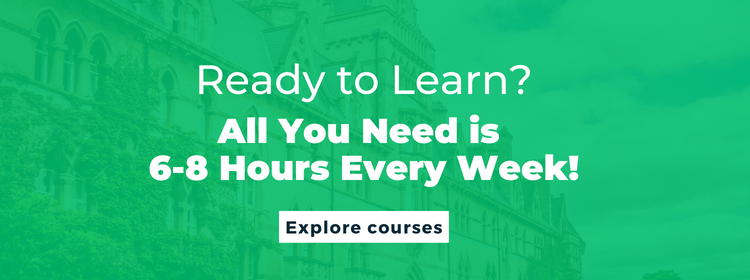The Most Important Job Interview Questions to Land Your Dream Job

When you start looking for a job, it may seem scary to think about the questions that could come up in job interviews. This makes getting ready for a job interview very important. Knowing common job interview questions is one part of being prepared. Moreover, it’s also vital to learn how to answer job interview questions. Here we have a compilation of top inquiries and job interview answers that every job hunter must know about. We have also added crucial suggestions for common interview questions, the STAR method in interviews, interview tips, and guidance on talking about strengths and weaknesses during an interview.
25 Best Interview Questions and Answers
1. Tell Me About Yourself
 This is one of the job interview questions that presents a golden opportunity to set the tone of the interview. Beginning with your most recent job, briefly recount your career path. Moreover, link your professional experience directly to what the job specification entails. Additionally, emphasize the “self intro for interview” aspect. This means focusing on accomplishments that are most relevant to the position. Hence, concluding with a statement about why you are excited about the opportunity ties your introduction back to the interviewer’s interest.
This is one of the job interview questions that presents a golden opportunity to set the tone of the interview. Beginning with your most recent job, briefly recount your career path. Moreover, link your professional experience directly to what the job specification entails. Additionally, emphasize the “self intro for interview” aspect. This means focusing on accomplishments that are most relevant to the position. Hence, concluding with a statement about why you are excited about the opportunity ties your introduction back to the interviewer’s interest.
2. What are Your Strengths?
This inquiry allows you to highlight attributes that are most valuable to the employer. Additionally, mention skills that align with the job description. Moreover, providing concrete examples, such as achievements or accolades, validates your claims. This approach not only answers the question but also demonstrates your suitability for the role.
3. What are Your Weaknesses?
Strengths and weaknesses interview questions are inevitable, so be prepared for both. When addressing weaknesses, honesty is key. However, it is important to focus on traits that you have taken steps to improve. Moreover, discussing the measures implemented to overcome these weaknesses shows commitment to self-improvement. Make sure to emphasize that these weaknesses do not impair your ability to perform the job’s essential functions. Thus, this answer reflects self-awareness and a proactive approach to personal and professional development.
4. Why are You Interested in This Role?
This question offers a platform to showcase both your knowledge of the company and how your professional goals align with its objectives. First, expressing genuine enthusiasm for the role. Then, talk about how your background equips you to meet and exceed the job requirements demonstrates a strong fit. Then discuss specific aspects of the company or its culture that appeal to you; this shows that you have done your homework.
5. Where do You See Yourself in Five Years?
Employers are looking for candidates with ambition and a sense of direction. Hence, aligning your career aspirations with the company’s growth demonstrates long-term potential. Furthermore, mention how you plan to contribute to the company’s success. Doing so establishes your interest in adding value. This kind of a question allows you to share your professional goals and how they intertwine with the company’s future.
ALSO READ: Future-Proof Your Career: Top 5 Fastest-Growing Careers 2024 Revealed
6. How do You Handle Stress and Pressure?
Again, illustrating your methods for managing stress highlights your resilience. Besides, providing examples from your previous job where effective stress management led to positive outcomes can be very persuasive. Also, discuss your proactive measures for stress prevention, such as organization or mindfulness practices. This shows that you are equipped to manage high performance even under pressure.
7. Describe a Challenge You Overcame
 Focusing on a specific challenge allows you to detail your problem-solving process. Furthermore, employing the STAR technique for interviews (Situation, Task, Action, Result) helps structure your answer coherently. Additionally, emphasize the positive outcomes of the situation to demonstrate your resilience and ability to turn obstacles into opportunities. This response highlights your problem-solving skills and capacity to persevere through difficulties.
Focusing on a specific challenge allows you to detail your problem-solving process. Furthermore, employing the STAR technique for interviews (Situation, Task, Action, Result) helps structure your answer coherently. Additionally, emphasize the positive outcomes of the situation to demonstrate your resilience and ability to turn obstacles into opportunities. This response highlights your problem-solving skills and capacity to persevere through difficulties.
8. How do You Prioritize Your Work?
Demonstrating organizational skills is the aim here. Also explain how you manage competing deadlines or projects because it shows your ability to maintain efficiency in a dynamic work environment.
9. What is Your Greatest Achievement?
This question gives you the opportunity to discuss a career highlight. Moreover, selecting an achievement relevant to the potential role illustrates how your contributions could benefit the prospective employer.
10. Why Should We Hire You?
This is your opportunity to summarize what you will bring to the organization. Furthermore, directly linking your skills and experiences to the job’s requirements can effectively showcase why you are the best candidate for the position.
ALSO READ: The Ultimate Transferable Skills Examples: How to Thrive in Any Industry
11. Do You Have Any Questions for us?
Having questions prepared demonstrates your interest in the role and company. Inquiring about specific aspects of the job, team dynamics, or company culture shows that you are thinking about how you can fit and contribute. Moreover, asking about future projects or how success is measured in the role indicates your eagerness to engage and excel.
12. How Would Your Colleagues Describe You?
This question seeks to uncover how you perceive yourself within a team setting. Additionally, mentioning qualities such as dependability, creativity, or the ability to mediate conflicts shows your awareness of your role in group dynamics. Provide some examples of when these traits came into play; this will help reinforce your claims.
13. What Motivates You?
Employers aim to understand what drives you to perform at your best. Consequently, aligning your motivations with aspects of the job or company mission can illustrate a good fit. Discussing how these motivations have propelled you in your career thus far adds depth to your answer.
14. Tell Us About a Time You Demonstrated Leadership
Regardless of your official title, showcasing leadership abilities is valuable. Therefore, detailing a situation using the STAR technique where you guided a team or project to success demonstrates your leadership style and effectiveness. Moreover, highlighting the impact of your leadership on the project or team’s success underscores your capabilities.
15. How do You Deal With Conflict in the Workplace?
This question assesses your emotional intelligence and problem-solving skills and approach to conflict resolution. Thus, offer a specific example of a workplace conflict and how you resolved it. Talk about the positive outcome of the conflict resolution process to focus on your mediation skills.
ALSO READ: How to Get Hired for Your Dream Job (Insiders’ Tips From Someone Who Did!)
16. What do You Know About Our Company?
This inquiry evaluates your interest in and knowledge of the company. Therefore, sharing what you have learned about the company’s values, culture, and goals, as well as how you see yourself contributing, demonstrates your enthusiasm.
17. How do You Stay Organized and Manage Time?
Effective time management is crucial in any role. Thus, explaining your use of tools or methods for organizing tasks and managing deadlines, along with examples of these strategies in action, highlights your efficiency and reliability.
18. What Makes You Unique?
This question gives you the chance to differentiate yourself from other candidates. Therefore, focusing on unique skills or perspectives you bring to the table, and how they can benefit the team or company, helps to set you apart.
19. How do You Continue to Grow Professionally?
A commitment to professional development is a trait of a valuable employee. Thus, discussing any recent or ongoing education, training, or personal projects you are involved in demonstrates your dedication to advancing your skills and knowledge.
20. What are Your Salary Expectations?
Being prepared with a salary range based on research and your experience level is important. Furthermore, showing flexibility and openness to negotiate based on the overall compensation package reflects your pragmatism.
ALSO READ: Top 20 Appraisal Questions and Answers: A Definitive Guide to Salary Hike
21. Do You Prefer to Work Independently or on a Team?
Most roles require a mix of teamwork and individual work. Therefore, providing examples of your success in both scenarios and explaining how you adapt to different working styles illustrates your versatility.
22. How do You Define Success?
Success is subjective and personal. Therefore, explaining your personal definition of success in the workplace, and how it aligns with the company’s values or goals, can provide an insight into your motivations and work ethic.
23. What is Your Approach to Making Decisions?
Talk about your decision-making process, including how you gather information, consider options, and anticipate outcomes. Be sure to illustrate this with an example. This shows your analytical and critical thinking skills when you answer these job interview questions.
24. What Has Been Your Most Challenging Project?
Detailing a challenging project and how you navigated it reveals your problem-solving and perseverance. Moreover, focusing on the strategies you employed and the outcome highlights your capability to tackle complex tasks.
25. How Would You Improve Our Current Product/Service?
Lastly, offering thoughtful feedback or suggestions for improvement shows your initiative and creativity while answering job interview questions. Furthermore, ensuring your suggestions are realistic and align with the company’s objectives demonstrates your understanding of the business.
ALSO READ: Addressing Career Gap: Top 5 Strategies to Clear an Interview
Frequently Asked Questions About Interview Questions
1. How Can Professionals Effectively Prepare for Job Interviews?
Firstly, thorough job interview preparation involves researching the company and practicing common interview questions. Furthermore, tailoring your resume and preparing your “self intro for interview” are essential steps.
2. What are Some Common Job Interview Questions?
Job interview questions often revolve around your experience, skills, and how you handle challenges. Moreover, questions about strengths and weaknesses are common.
3. How Can Professionals Craft Strong Answers to Job Interview Questions?
Using the STAR technique for interviews can help structure compelling answers. Furthermore, tailoring your responses to align with the job description is crucial.
ALSO READ: 4 Best Ways to Prepare for Career Change Interview Questions and Answers
Acing your job interview questions requires preparation, practice, and a bit of strategy. Moreover, focusing on job interview answers, job interview preparation, and employing interview tips can set you apart. Furthermore, for those looking to sharpen their skills further, Emeritus’ online courses offer comprehensive resources to boost your career. Thus, prepare diligently, and you’ll be well on your way to acing your next interview.
Write to us at content@emeritus.org



